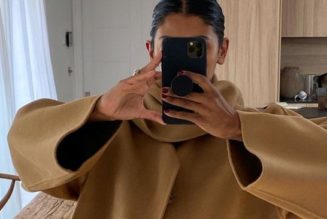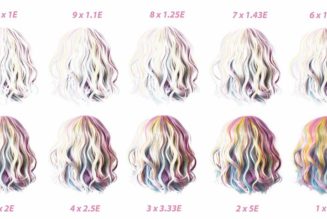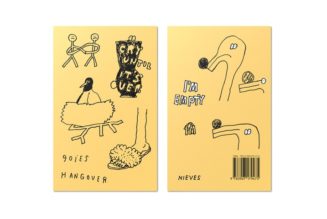Last year, Jessica Tian, a magazine editor in Beijing, was shopping for an engagement ring with her then-fiancé. She decided to seek advice on Chinese social media and e-commerce platform Xiaohongshu: Which ring should she go for? A 0.8-carat Tiffany or a 0.7-carat Harry Winston?
After dozens of other Xiaohongshu users commented on her post, she decided to go with the latter. “I was leaning towards Tiffany,” the 29-year-old told Rest of World. “But I changed my mind after reading the comments.”
On Xiaohongshu, translated in Chinese as “little red book,” users like Tian are able to find answers to all kinds of questions that a young Chinese woman might ask: What should one order at the hottest new bubble tea chain? What medicines cure menstrual cramps? How do you clean false eyelashes? How do you break up with someone without hurting them? Along with selecting her engagement ring, Tian used the app to choose cat food, an electric car, a water heater, and floor tiles for her new apartment. “I would not trust something if no one has reviewed it on Xiaohongshu,” Tian said.
Founded in 2013 as a Hong Kong-specific guide for wealthy, mostly female travelers looking for shopping recommendations, Xiaohongshu has since expanded into a platform with 200 million monthly active users, who use the app to share tips on everything from dieting to dating to language learning. Information has become so abundant and diverse on Xiaohongshu that many users — young, affluent, urban, and predominantly female — use it as their primary search engine. In a statement to Rest of World, the company described itself as a “lifestyle bible.”
“People on Xiaohongshu want to see a polished and self-disciplined way of life.”
For urban Chinese youth today, Xiaohongshu has become the go-to guide on how to live better by buying more. Its fans describe Xiaohongshu as a women-friendly community with shared aspirations, while critics have called it a consumerist trap that suffocates the young generation with unrealistic expectations.
“Xiaohongshu is a platform that completely embraces consumerist culture,” Jia Guo, a PhD candidate at the University of Sydney who has studied Xiaohongshu influencers, told Rest of World. “It demonstrates users’ aspiration for a polished, bougie, middle-class way of life.”
Just like short-video platform Douyin and e-commerce platform Taobao encourage people to shop through viral videos and livestreams, Xiaohongshu has created a lucrative business model that brings together social media and e-commerce. Its feed offers an infinite scroll of Instagram-like posts, powered by TikTok-style recommendations. Users search on the app for specific goods or life hacks — more than half of Xiaohongshu’s daily active users used the search function in 2022, the company said — and then get fed related content.
The app’s allure lies in its “grass-planting” power, slang for the effect that makes someone want to buy a certain product. Users are able to discover products reviewed by their peers, which are used in their makeup routines, their outfits of the day, and travel blogs — more desirable than those promoted by explicit advertising. ByteDance has launched the Xiaohongshu-like app Lemon8 overseas, attempting to replicate the grass-planting effect in countries like Japan, the U.S., and the U.K.
Chinese people consider Xiaohongshu to be jingzhi, or polished. The app entices users by presenting an idealized urban lifestyle — filled with elaborate skincare routines, weekend brunches, and overseas vacations — that remains out of reach for many.

Xiaohongshu influencer Anna Chen, a 22-year-old mainland Chinese college student in Hong Kong, has amassed more than 50,000 followers by posting about handbags, an omakase dinner, and her experience attending summer school at the prestigious Peking University. She collaborates with brands, such as an eyeglasses shop and a pharmacy, by posting photos of herself with their products, and always knows which camera angle makes her legs look long and her face look small. “People on Xiaohongshu want to see a polished and self-disciplined way of life,” she told Rest of World.
Xiaohongshu’s emphasis on the importance of physical beauty and individual achievement could also be harmful. Research suggests the heavily retouched photos posted by Xiaohongshu influencers make young women more unhappy about their own bodies. Yixuan Liu, a PhD candidate at the University of Texas at Austin, who studied how mothers sought health advice on Xiaohongshu after giving birth, told Rest of World the impeccable photos posted by babycare influencers gave women unattainable expectations about their bodies after childbirth.
Xiaohongshu has succeeded as a result of Chinese people’s rising purchasing power and their aspiration to live a cosmopolitan lifestyle, according to Sheng Zou, a professor at Hong Kong Baptist University who researches media and politics in China. But as more young people turn to Xiaohongshu as their primary social network, Zou said they risk being trapped in a social environment dominated by consumerism.
While social media websites such as Weibo, despite rigid censorship, serve as town halls of public discourse to discuss everything from current events to celebrity gossip, Xiaohongshu functions like a giant mall, where shoppers tell each other what to buy, through glamorous pictures, cute emojis, and enthusiastic headlines. A bowl of ramen is “mind-blowingly delicious.” Cherry blossoms in the eastern city of Hangzhou reach “the ceiling of romance.” “I almost fell in love because of this smell,” one Xiaohongshu user said of a fabric softener.
Businesses sometimes hire influencers and ghostwriters to bulk-produce positive reviews. Fan, a ghostwriter based in the northeastern city of Changchun, told Rest of World she could write more than 50 Xiaohongshu posts a day, with headlines such as “Algorithm, please push this to all my sisters!” or “I regret not having seen it earlier!”

The 30-year-old Fan, who preferred to be identified only by her last name for fear of being recognized by her employers, said she took caffeine pills to get herself into the kind of exhilarating mood that generates Xiaohongshu clicks. “You feel excited and shaky. Your face burns,” she said. “It’s what readers are supposed to feel when they read posts, like they are high on drugs.”
Although Xiaohongshu content revolves around shopping, the app is not immune from state censorship. Even consumption needs to be reined in at times. After China’s internet watchdog warned against online content promoting wealth and extravagance, Xiaohongshu launched campaigns against flaunting wealth, fake reviews, and overly retouched photos. “If you are relatively wealthier, please be empathetic and take into account the feelings of others when sharing your content,” its community guidelines state. Xiaohongshu says it also has a team to combat false marketing, such as ghostwriting.
The platform’s expanding user base has also allowed for communities to form around interests other than just shopping. “At first, Xiaohongshu was about showing off a privileged life, and making everyone else want that,” Luo Kai, co-founder of Shanghai-based influencer agency Tomatogo, told Rest of World. “As more creators join, they are bringing new hobbies and styles to the app.”
Blue-collar workers exchange reviews about electronic factories. Queer communities share coming-out stories. Cooking enthusiasts swap family recipes. Icelandic language learners can find vocabulary lists, and connect with fellow learners on the app.
But female consumers and their “grass-planting” conversations will continue to be the biggest commercial asset for Xiaohongshu, Luo said. Despite attempts to diversify, Xiaohongshu’s user base is significantly younger, wealthier, and more urban than the average Chinese person. In October 2021, 70% of its users were women and 72% were under 30 years old, the company told Rest of World. Half its users come from China’s first- and second-tier cities, where only 30% of Chinese people resided in 2020.
Outside of the big cities and the affluent middle class, some young people are becoming disillusioned with Xiaohongshu, and the idea that a better lifestyle can be bought.
Angel Wang, a 16-year-old high school student from Changchun, decided to quit Xiaohongshu in January. She was jealous of the attractive influencers, their indulgent lifestyles, and perfect families, Wang told Rest of World. She also struggled to resist all the lipstick and snack recommendations that the app pushed her to buy. “But I can’t just keep buying things,” she said. “So I just shut them out.”









